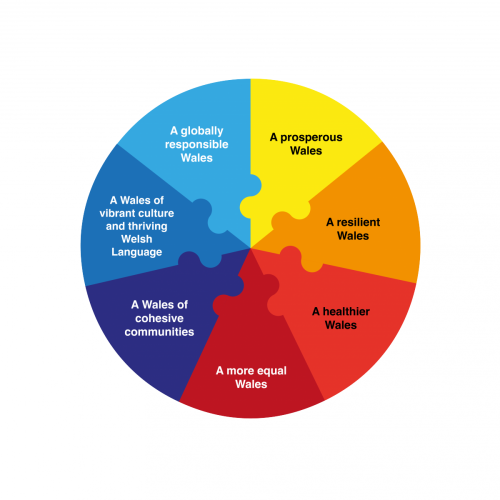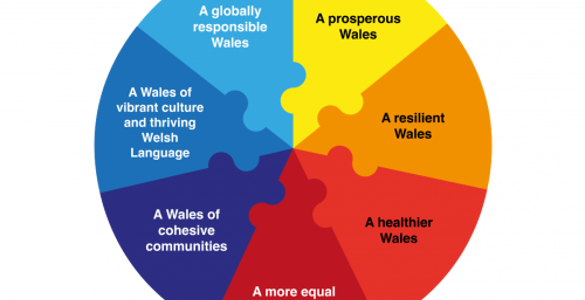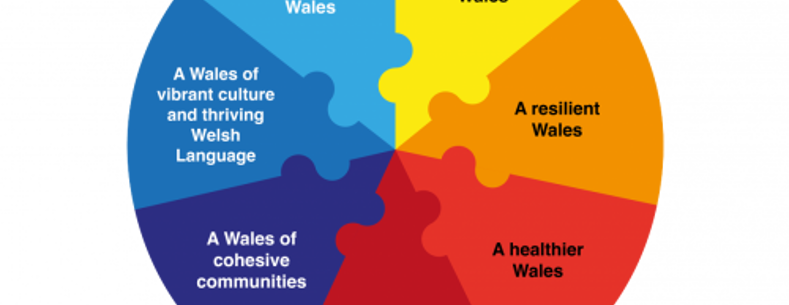Article by Chloe Corbyn, National Assembly for Wales Research Service
On 19 October the Welsh Government issued a consultation on well-being indicators: How do you measure a nation’s progress? Proposals for the national indicators to measure whether Wales is achieving the seven well-being goals in the Well-being of Future Generations (Wales) Act 2015. [caption id="attachment_5046" align="alignright" width="500"] Future Generations Act - Well-being Goals for Wales[/caption] Earlier this year, the National Assembly for Wales passed the Well-being of Future Generations (Wales) Act. The purpose of the Act is to improve the social, economic, environmental and cultural well-being of Wales. It puts in place seven well-being goals for Wales. Section 10 of the Act places a legal requirement on the Welsh Ministers to set national indicators to measure progress towards achieving the goals. There is also a requirement to set milestones in relation to the indicators – work on developing milestones will follow the publication of the final set of indicators. An ‘Annual Well-being Report’ will be published by Welsh Ministers every year, reporting on progress towards achieving the seven well-being goals. This report will also be taken into account by the Future Generations Commissioner when preparing and publishing their Future Generations Report. The consultation sets out the draft proposals for 40 national well-being indicators, and provides the opportunity to suggest improvements to the proposed indicators or make suggestions for alternative indicators. The proposed indicators
Future Generations Act - Well-being Goals for Wales[/caption] Earlier this year, the National Assembly for Wales passed the Well-being of Future Generations (Wales) Act. The purpose of the Act is to improve the social, economic, environmental and cultural well-being of Wales. It puts in place seven well-being goals for Wales. Section 10 of the Act places a legal requirement on the Welsh Ministers to set national indicators to measure progress towards achieving the goals. There is also a requirement to set milestones in relation to the indicators – work on developing milestones will follow the publication of the final set of indicators. An ‘Annual Well-being Report’ will be published by Welsh Ministers every year, reporting on progress towards achieving the seven well-being goals. This report will also be taken into account by the Future Generations Commissioner when preparing and publishing their Future Generations Report. The consultation sets out the draft proposals for 40 national well-being indicators, and provides the opportunity to suggest improvements to the proposed indicators or make suggestions for alternative indicators. The proposed indicators
|
|
The consultation also includes a number of indicators that are not included in the list above, but are present to inform stakeholders’ consideration for alternative indicators. Excluded areas include: Subjective well-being, accessible communities, water resource availability, renewable energy, infrastructure, entrepreneurship and ethical consumption. The deadline for consultation responses is 11 January 2016.






